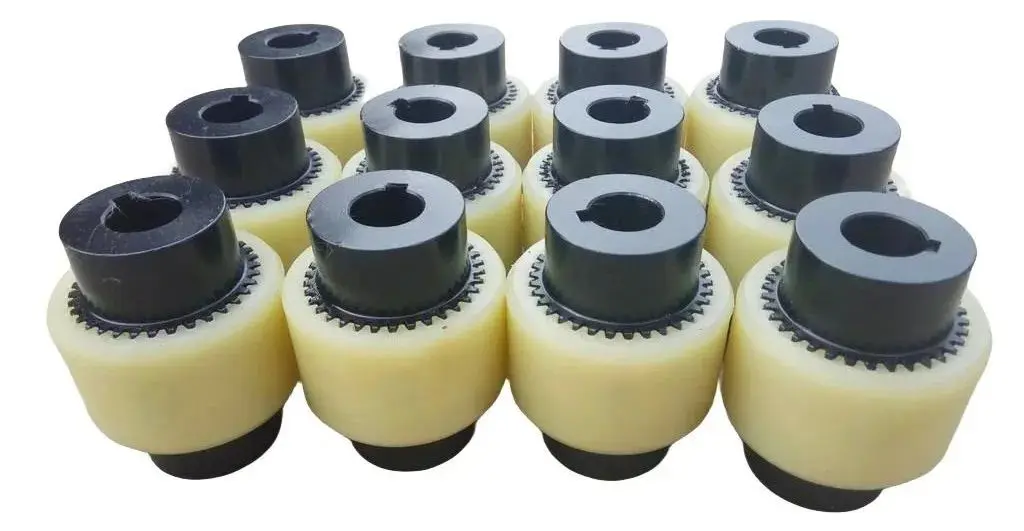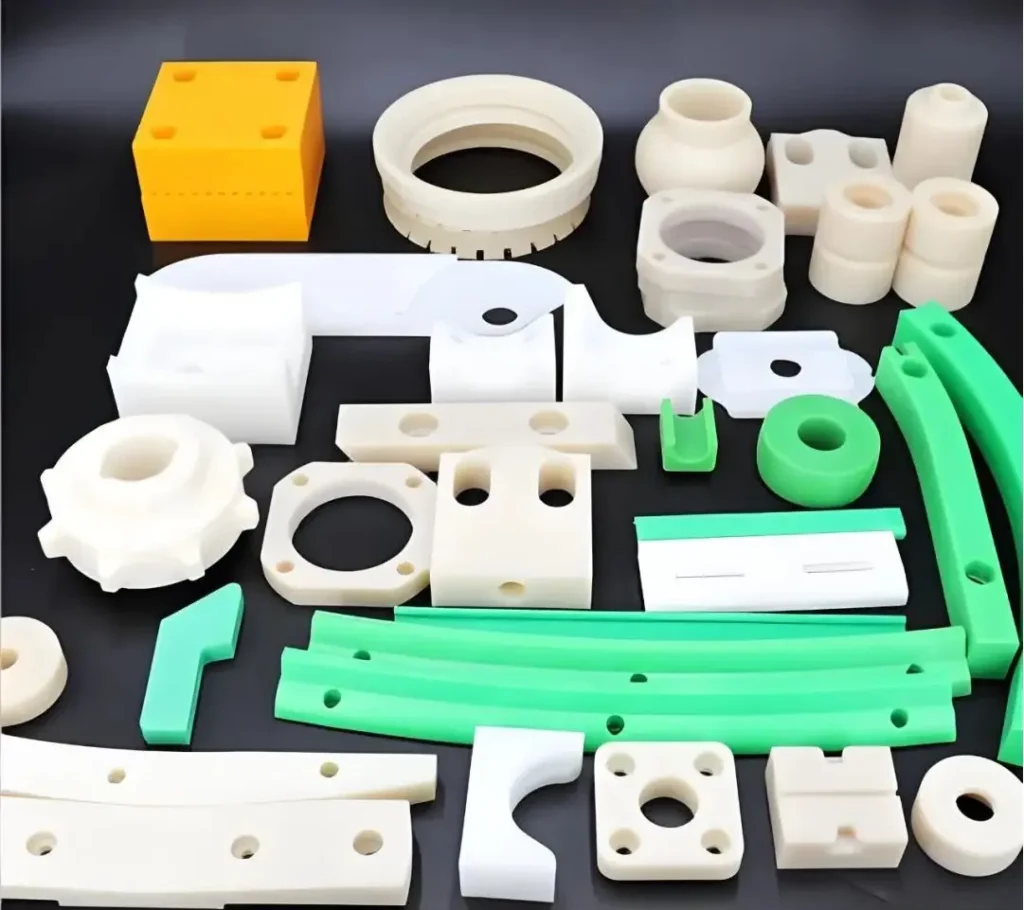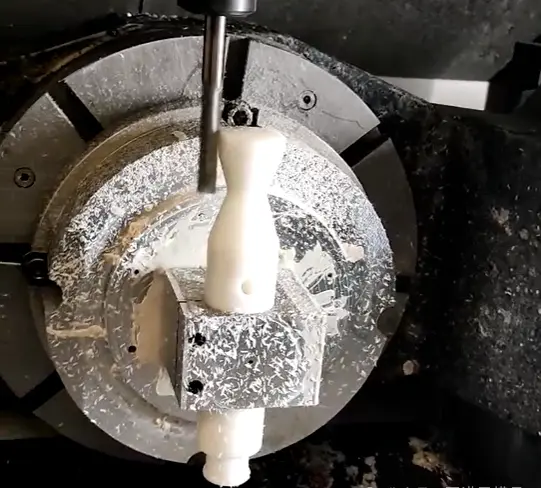Nylon Coupling Sleeve: Durable & High-Performance Nylon Couplings
In the world of industrial machinery and piping, coupling sleeves play a crucial role in ensuring the efficient transfer of power and motion. Among the various types of coupling sleeves available, nylon coupling sleeves stand out for their durability, high performance, and versatility. This article delves into the characteristics, benefits, and applications of nylon coupling sleeves, addressing key questions and highlighting their significance in various industries.
What is a Nylon Sleeve Coupling?
A nylon sleeve coupling is a type of flexible coupling that consists of a nylon sleeve connecting two metal hubs. These couplings are designed to transmit torque while accommodating slight misalignments between connected shafts. The nylon material provides flexibility, reducing the risk of damage to connected equipment and absorbing shocks and vibrations.
The Purpose of Sleeve Coupling
Sleeve couplings, including nylon sleeve couplings, serve several purposes:
Torque Transmission: They transmit rotational motion and torque from one shaft to another.
Misalignment Accommodation: They compensate for slight misalignments between connected shafts.
Shock Absorption: They dampen shocks and vibrations, protecting machinery from damage.
Wear Reduction: They minimize wear and tear on connected components.
Characteristics of Nylon Sleeves
Durability and Strength
Nylon is known for its exceptional durability and strength. Nylon coupling sleeves can withstand high levels of stress and strain, making them suitable for demanding industrial applications.
Flexibility
The inherent flexibility of nylon allows these couplings to accommodate misalignments and absorb shocks, ensuring smooth and efficient operation.
Chemical Resistance
Nylon is resistant to a wide range of chemicals, making nylon coupling sleeves ideal for use in harsh environments where exposure to corrosive substances is common.
Lightweight
Nylon is significantly lighter than metal, reducing the overall weight of the coupling assembly and making installation and maintenance easier.
Types of Nylon Coupling Sleeves
Nylon Sleeve Gear Coupling
This type of coupling consists of two metal hubs with external teeth and a nylon sleeve with internal teeth. The teeth mesh together, allowing torque transmission while accommodating misalignments.
Nylon Sleeve Gear Type Couplings
Similar to the gear coupling, these couplings use a nylon sleeve with internal teeth to connect two metal hubs. They are designed for applications requiring high torque transmission and flexibility.
Sleeve Coupling for Pipes
These couplings connect two pipes, ensuring a leak-proof and flexible joint. Nylon sleeve couplings for pipes are commonly used in plumbing and piping systems.
Chain Coupling
Chain couplings use a nylon sleeve to connect two sprockets, transmitting torque through the chain. The nylon sleeve provides flexibility and reduces wear on the chain and sprockets.
Teflon Coupling
While not made of nylon, Teflon couplings share similar properties, such as chemical resistance and flexibility. Teflon is another popular material for coupling sleeves.
Flange Coupling
Flange couplings connect two shafts using a nylon sleeve and flanges bolted together. The nylon sleeve provides flexibility and shock absorption.
KTR Coupling
KTR couplings are a brand of flexible couplings that often use nylon sleeves. These couplings are known for their high performance and reliability in various industrial applications.

Nylon Coupling Sleeve Sizes and Specifications
Size Chart
Nylon coupling sleeves come in various sizes to fit different shaft diameters and torque requirements. Here is a sample size chart for nylon coupling sleeves:
| Size (mm) | Shaft Diameter (mm) | Torque Capacity (Nm) | Length (mm) |
| 20 | 5-10 | 10 | 30 |
| 40 | 10-20 | 25 | 50 |
| 60 | 20-30 | 50 | 70 |
| 80 | 30-40 | 100 | 90 |
| 100 | 40-50 | 200 | 110 |
| Coupling Type | Sleeve Diameter (mm) | Length (mm) | Torque Capacity (Nm) |
| Nylon Sleeve Gear Coupling | 25-100 | 50-200 | 50-5000 |
| Nylon Sleeve Gear Type | 30-120 | 60-240 | 100-7000 |
| Sleeve Coupling for Pipes | 20-80 | 40-160 | 20-2000 |
| Chain Coupling | 35-150 | 70-300 | 200-8000 |
| Teflon Coupling | 25-90 | 50-180 | 30-3000 |
| Flange Coupling | 40-130 | 80-260 | 400-6000 |
Installation of Nylon Coupling Sleeves
Installing a nylon coupling sleeve involves the following steps:
Preparation: Ensure that the shafts to be connected are clean and free of debris.
Alignment: Align the shafts to minimize misalignment and ease the installation process.
Sleeve Placement: Slide the nylon sleeve over one of the shafts.
Hub Attachment: Attach the metal hubs to the shafts, ensuring they are properly secured.
Sleeve Connection: Slide the nylon sleeve over the second hub, completing the connection.
Applications of Nylon Coupling Sleeves
Industrial Machinery
Nylon coupling sleeves are widely used in industrial machinery to connect shafts and transmit torque. Their flexibility and durability make them ideal for applications with high levels of stress and vibration.
Piping Systems
In piping systems, nylon sleeve couplings provide leak-proof connections and accommodate thermal expansion and contraction. They are commonly used in plumbing, HVAC, and chemical processing systems.
Automotive
In the automotive industry, nylon coupling sleeves are used in various applications, such as connecting drive shafts and steering columns. Their ability to absorb shocks and vibrations improves vehicle performance and longevity.
Agricultural Equipment
Nylon coupling sleeves are also used in agricultural equipment, where they connect power take-off (PTO) shafts and other rotating components. Their durability and flexibility ensure reliable operation in harsh conditions.
Jinan Welle Metal Products Co., Ltd (Welleshaft)
Website: www.welleshaft.com
Email: [email protected]
Phone: +86-156-5017-9596
Explore our range of durable and reliable coupling sleeves today!
Advantages of Nylon Coupling Sleeves
Durability: Nylon coupling sleeves are highly durable and resistant to wear and tear.
Flexibility: They accommodate misalignments and absorb shocks, protecting connected equipment.
Chemical Resistance: Nylon is resistant to many chemicals, making these couplings suitable for harsh environments.
Lightweight: Nylon is lighter than metal, reducing the overall weight of the coupling assembly.
Cost-Effective: Nylon coupling sleeves are generally more affordable than their metal counterparts.
Comparing Nylon with Other Materials
While nylon is a popular choice, it’s essential to understand how it compares with other materials like polyurethane and metal.
Polyurethane vs. Nylon: Polyurethane offers higher load-bearing capacity and better resistance to abrasion. However, nylon provides better flexibility and is lighter.
Metal vs. Nylon: Metal couplings are more durable and can handle higher torque loads. Nylon, on the other hand, is resistant to corrosion and much lighter, making it easier to handle and install.

Common Questions About Nylon Coupling Sleeves
What is the Best Material for Coupling?
The best material for coupling depends on the specific application requirements. Nylon is an excellent choice for applications requiring flexibility, chemical resistance, and lightweight properties.
Why is Coupling Needed?
Coupling is needed to connect two rotating shafts, transmit torque, and accommodate misalignments. It ensures the efficient transfer of power and motion between connected components.
What is the use of a sleeve coupler?
A sleeve coupler is used to join two shafts, allowing them to transmit torque while accommodating misalignments and absorbing vibrations.
What is the best material for coupling?
The best material depends on the application. Nylon is excellent for its flexibility and corrosion resistance, while metals are better for high torque and load applications.
What is the function of a sleeve joint?
A sleeve joint connects two shafts, allowing for torque transmission and slight movement to accommodate misalignments and thermal expansions.
What is the difference between poly and nylon fittings?
Poly fittings are typically more rigid and can handle higher loads, while nylon fittings are more flexible and resistant to abrasion and chemicals.
What is the other name of a sleeve coupler?
A sleeve coupler is also known as a sleeve connector or flexible coupling.
What is a sleeve pipe fitting?
A sleeve pipe fitting is used to join two sections of piping, providing a secure and flexible connection.
What are the three types of compression flexible couplings?
Single Split: Uses a single slit for flexibility.
Double Split: Two slits provide greater flexibility and ease of installation.
Multi-Slit: Multiple slits allow for maximum flexibility and shock absorption.
Conclusion
Nylon coupling sleeves are a versatile and durable solution for various industrial applications. Their ability to transmit torque while accommodating misalignments, reducing vibrations, and resisting corrosion makes them an ideal choice for many industries. By understanding the types, advantages, and installation methods of nylon coupling sleeves, businesses can ensure efficient and reliable operation of their machinery and systems.
For more information or to find the right nylon coupling sleeve for your needs, contact Welleshaft. With over 13 years of experience in aluminum casting parts customization and bending aluminum tube components, Welleshaft provides top-quality solutions tailored to your requirements.

